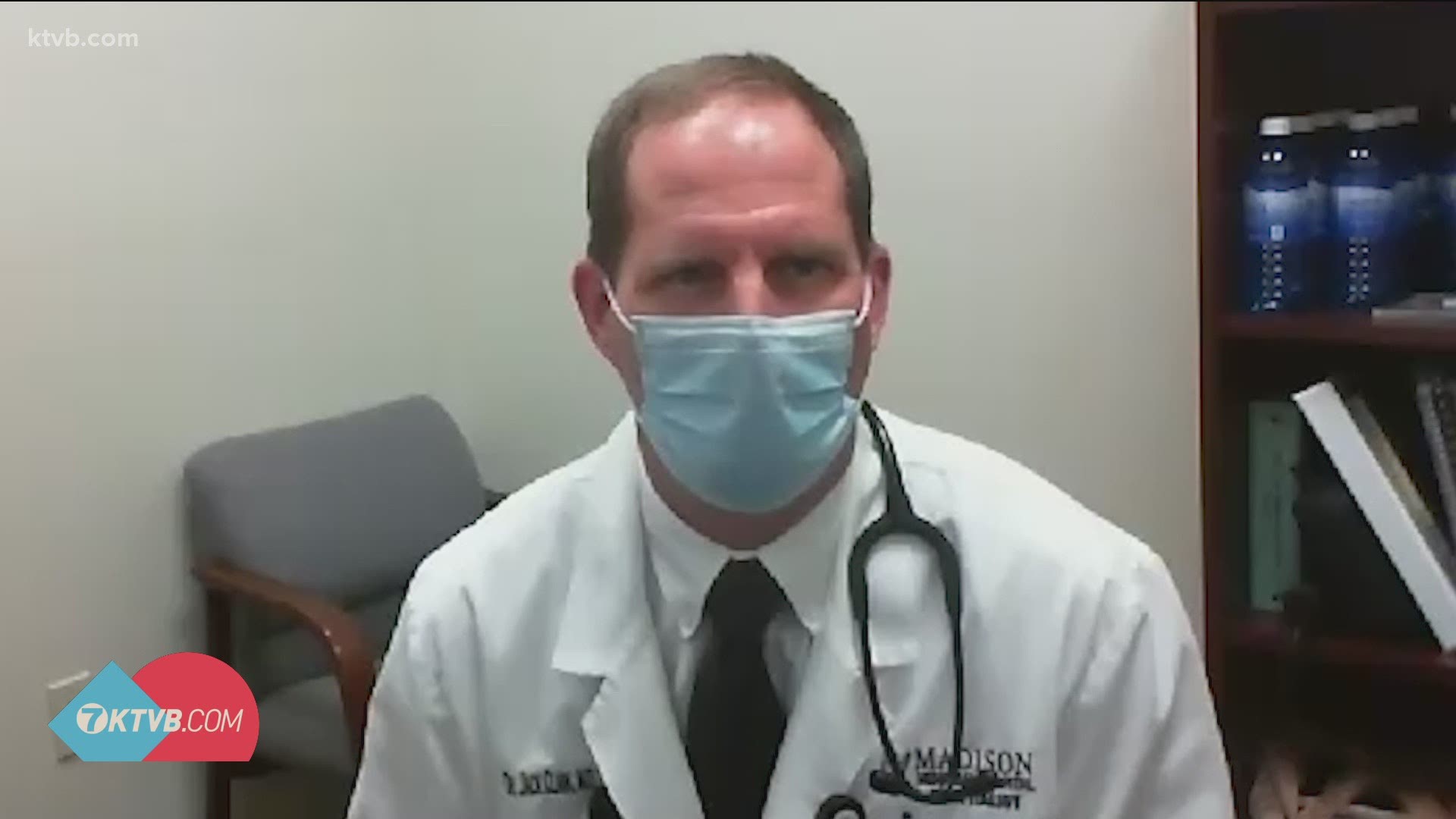REXBURG, Idaho — Dr. Jack Clark, an internal medicine doctor at Madison Memorial Hospital in Rexburg, became the second Idahoan to get the COVID-19 vaccine on Monday.
The hospital is the first facility in the state to receive and offer doses of the Pfizer vaccine to several frontline workers.
Clark was not the first Idahoan to receive the vaccine: that honor falls to Dr. Russel Mcune of Rexburg, an emergency room physician who works with COVID-19 patients regularly.
Although he has been at the Rexburg hospital for three and a half years, Clark has been working in the intensive care and COVID-19 units for the past eight months.
Nearly ten months into the COVID-19 pandemic, Idaho is finally receiving shipments of the vaccine. 13,650 doses are expected to arrive in the Gem State by the end of this week.
Clark has been studying the coronavirus and the vaccine since February. He got a look at the Pfizer brief explaining how the vaccine works and was medically impressed with how it was developed.
"I think our administration has been very proactive in terms of, we're doing some of the monotherapies, we're doing things trying to take care of patients," Clark said. "The other side of it is that we have had quite a few cases here. We have a university here with a lot of college students and we've led the nation a couple times in terms of new cases per day per 100,000. In one sense, we're a hot spot even though our total numbers are just under 5,000 right now per 100,000 people. We've had quite an outbreak in this area."
Upon receiving the vaccine, Clark had no hesitation, even with the quick approval from the Federal Drug Administration (FDA).
"I have been treating COVID patients for the past seven months and from outpatient to in-patient, I have seen the very sickest of the sick patients in the ICU's and I have seen the college kids with runny noses with basically nothing from it," he said. "And as far as I can tell there's no way to predict who is going to get what kind of disease, and so looking at the patient on the ventilator versus getting the vaccine, to me the vaccine is a no-brainer."
As the vaccine rollout begins, people still have trepidation about the vaccine and the virus. Clark, however, wants the public to acknowledge the risk associated in all choices, even those not related to COVID-19.
"Everything that we do in life, there's chances we may have to take but looking at the options in terms of the risk of getting this virus, which is a real virus, it does cause real disease, versus the risk of a vaccine, the best way to protect our population and individual people is to get the vaccine," he said. "Getting it so your body's immune system will be ready to fight this virus if and when you're actually exposed to it."
The vaccine is expected to be available to assisted living residents as early as next week. The general population will likely not have access to the vaccine until Spring 2021.
Facts not fear: More on coronavirus
See our latest updates in our YouTube playlist:

